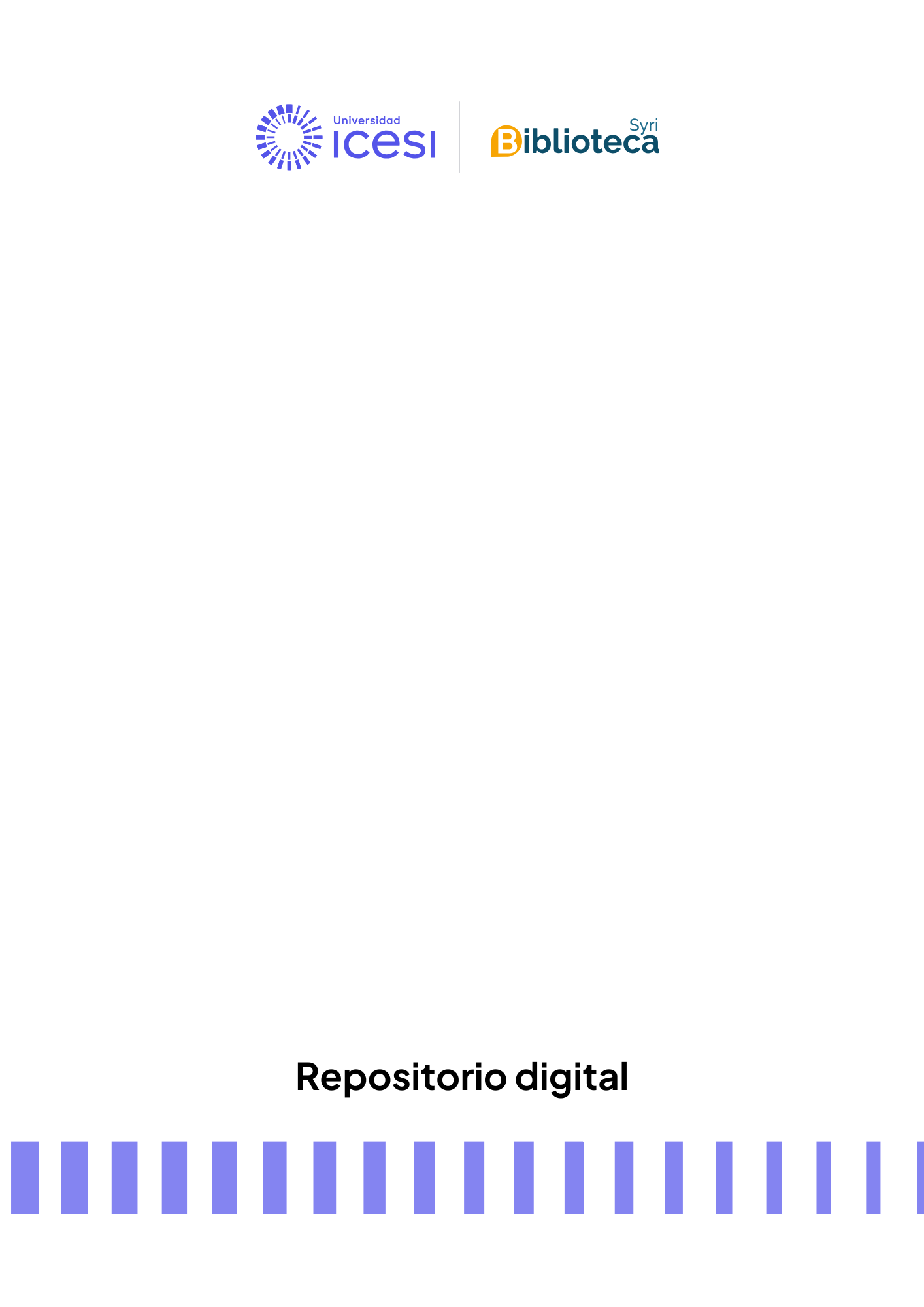Precedente - Revista Jurídica Vol. 3
URI permanente para esta colecciónhttp://hdl.handle.net/10906/76478
Examinar
Envíos recientes
Ítem La Restructuración de la deuda en la crisis Argentina: Estudio sobre el Sistema de Canje de la Deuda(Universidad Icesi, 2013-07-01) García, German; Peralta, Ángela; Linares, Alfonso; Rodríguez, Carlos; Ovalle, Juan DavidThis document analyzes issues related to the Republic of Argentina public debt during the 2001 financial crisis up to the solvency period. It also examines general and specific issues of the Argentinian case in particular, the legal definition of debt issue, the state of default or payments interruption, and the debt restructuring implemented as a “final” solution to the crisis. At the end, the document looks into some claims filed against Argentina, which proves the inefficiency of debt exchange systems for the creditors in the case of State default.Ítem Régimen de inversiones internacionales en Colombia(Universidad Icesi, 2013-07-01) Róman Gaitán, CristinaEn el presente documento se analiza el régimen de inversiones internacionales vigente en Colombia, dictado por el Gobierno Nacional en cumplimiento de lo dispuesto en la Ley Marco de Cambios Internacionales (Ley 9 de 1991). Asimismo, se abordan las dos grandes categorías de inversiones internacionales: la inversión extranjera y la inversión Colombiana en el exterior. Mediante la descripción y explicación de los presupuestos y procedimientos de este régimen se pretende aclarar los requisitos básicos para la realización de inversiones internacionales.Ítem El error como eximente de la responsabilidad penal en Colombia(Universidad Icesi, 2013-07-01) Echeverry Enciso, YesidEl artículo pretende analizar la forma en que el legislador colombiano, la jurisprudencia y la doctrina nacionales, han abordado el error como eximente de responsabilidad penal. Al mismo tiempo, y de conformidad con las teorías de la culpabilidad dominantes, propone unos criterios que orientan su evaluación a efectos de determinar, en cada caso, si se trata de un error vencible o invencible, así como las respectivas consecuencias que se derivan de su comisión.Ítem Patentes farmacéuticas en Colombia. Entre la protección a la propiedad industrial y la tutela del interés público(Universidad Icesi, 2013-07-01) Flórez Zuluaga, Andrés Felipe; Mondragón Pérez, Carlos AndrésThis paper purposes to evaluate the limits enforced by the Colombian legal system to the derivative rights from the granting to invention patents in the pharmaceutical sector, in relation to the access to medical products. The evaluation analyses the applicable rules to patent granting, patent protection, and the corresponding vigilance and control duties. It then considers the stress concerning the right to the industrial property and the right to health; it finally offers some recommendations that will help to regulate the industrial property protection mechanisms and general interest, in relation to the access to medicines.Ítem La evaluación de la investigación jurídica en México. Observaciones al mecanismo de evaluación del CONACYT(Universidad Icesi, 2013-07-01) Solórzano Peña, María Amelia; Acevedo Contreras, RamiroCONACYT is the Mexican council responsible for the coordination and evaluation of the national policy on science, technology and innovation, which applies a peer review mechanism for the acceptance or refusal of the national research projects, and the incorporation of new researchers. When concerning to the Law areas this method lacks of objectivity; that is the thesis of the present article. It is also argued that, as a State organization, it is obliged to apply the rightfulness and legal certainty principles in the evaluation process, as in any administrative act.Ítem Libertad negativa y libre desarrollo de la personalidad en la jurisprudencia constitucional colombiana: un análisis desde la perspectiva de John Stuart Mill y Thomas Hobbes(Universidad Icesi, 2013-07-01) Jaramillo Rojas, Carlos AlbertoThe main purpose of this paper is to demonstrate that the Colombian Constitutional Court confuses the interpretation of the concept of free development of personality with the one of negative freedom, as the thinking of Thomas Hobbes lies behind its argument. If he Court would base its judgments on the conception of freedom, developed by John Stuart Mill, the inference would be different, as this concept seems to adapt with the view of free development of personality under the assumptions of a Social and Democratic State of Law grounded on the fundamentals of human dignity.Ítem Una aproximación casuística a la cuestión de la aplicación del derecho injusto en la filosofía moral kantiana(Universidad Icesi, 2013-07-01) Blandón - Ramirez, Juan SebastiánThis paper deals with the issue of the application of unjust law from a problematic case for Kantian practical philosophy, as it is the duty of an agent to execute a valid order, which considers unjust and against morality, whose consequences are eminently prejudicial to the humanity of others. In this sense, it will investigate about the possible conduct in which the agent, under the circumstances raised, can perform in a moral and discretionary way according to Kantian precepts, identifying and explaining the different mandates imposed by the categorical imperative and how the agent would face an eventual conflict between ethical and legal duties.Ítem Circular Migration as Climate Change Adaptation: Reconceptualising New Zealand´s and Australia’s Seasonal Worker Programs(Universidad Icesi, 2013-07-01) Tabucanon, Gil Marvel; Brickenstein, ChristineThis paper looks into an aspect of adaptation, namely the role of the circular migrtion as climate change adaptation. It focuses on two of the Pacific region’s recently well -known seasonal labor schemes, Namely Australia’s Seasonal Workers Program (SWP) and New Zealand ‘s recognized Seasonal Employer Scheme (RSE), and asks if beyond the current goals the schemes May be reconceptualsed as adaptation programs responsive not only towards developmental and economic Concerns but the wider (and interconnected With the first two) climate change challenges. According to MacDer mott and Opeskin, labor mobility schemes, for the sending country focus on the “development perspective “such as (a) Employment Opportunities, (b) Regular benefits of Remittances and (c) skills enhancement, while receiving countries country can meet the challenges posed by labor shortages in seasonal industries where “a reliable workforce is lacking”.

